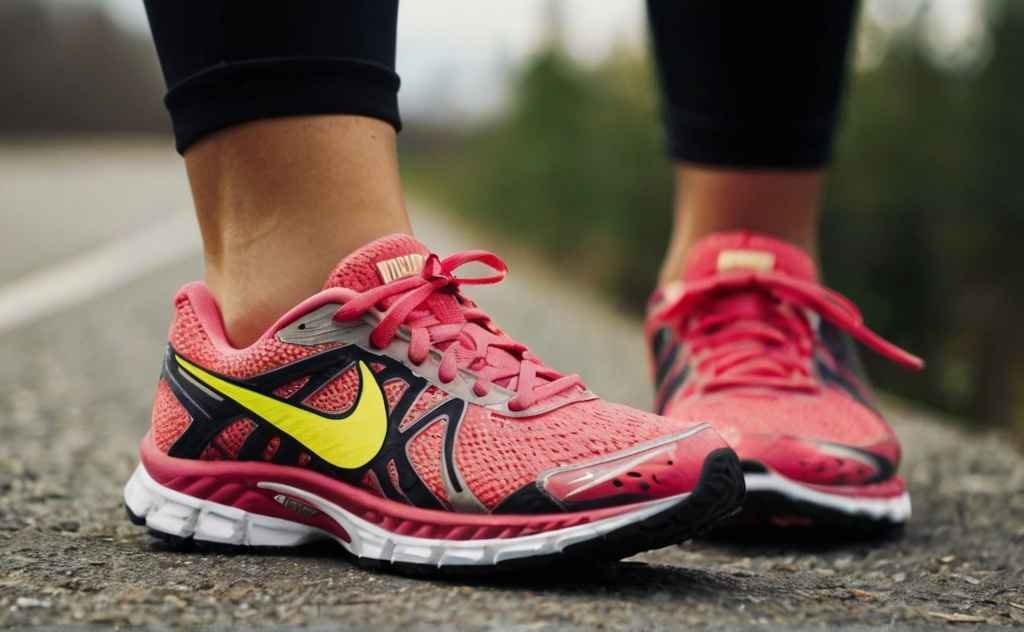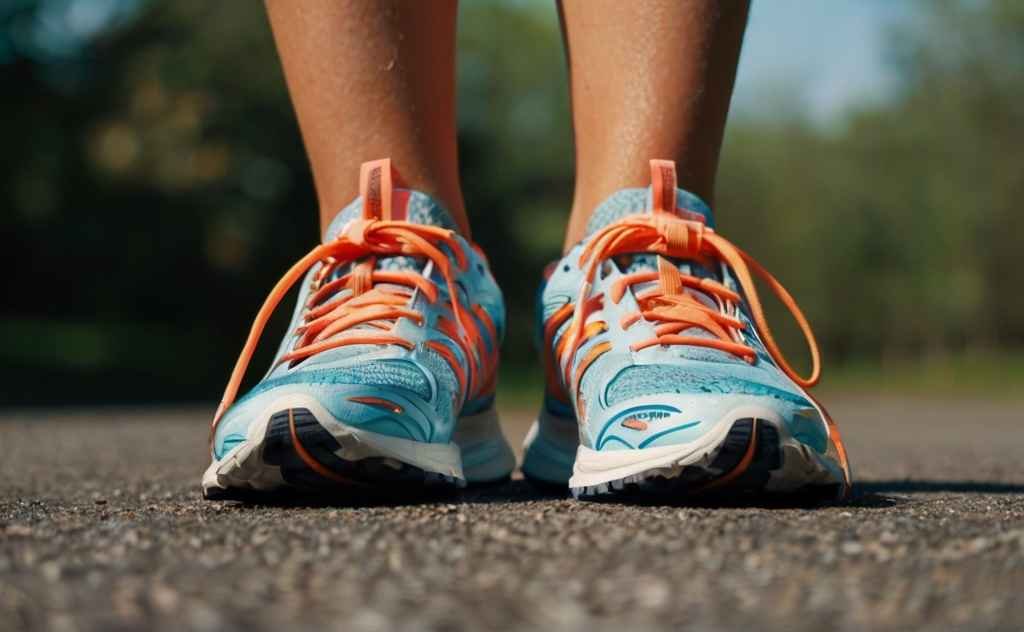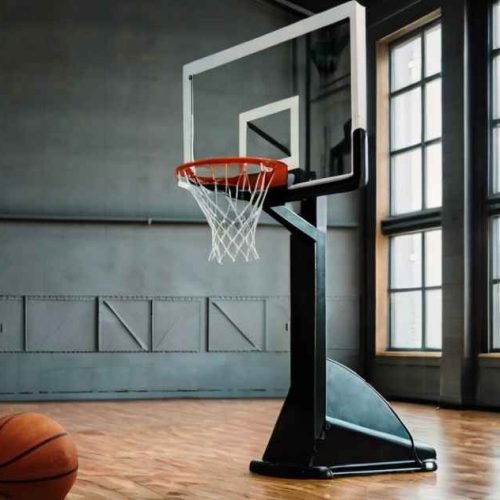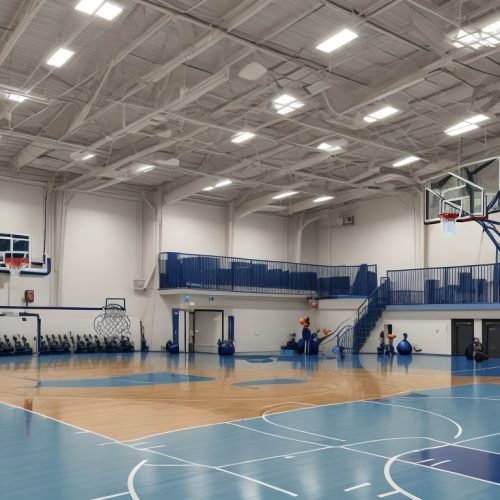Having the proper footwear is crucial while participating in physical activities such as running or playing basketball. Even though they’re designed for different activities, some people may enquire if they can just wear basketball shoes for running or switch between running shoes and basketball shoes. To assist you make a well-informed decision, we will examine the compatibility of basketball shoes for running in this post, going over the benefits, drawbacks, and key factors to keep in mind.
Shoes created specifically for basketball are carefully designed to fulfil the requirements of the basketball court. In order to give support during jumps, rapid stops, and lateral movements, they often have high ankles, are made of solid materials, and have robust padding. In order to improve performance and reduce the risk of injuries when playing basketball by wear basketball shoes for running, the design places an emphasis on stability, ankle support, and traction respectively.
Running Shoe Characteristics
On the other hand, running shoes are engineered specifically for the repetitive motion of running. They prioritize features such as lightweight construction, ample cushioning, and flexibility to absorb impact and facilitate the natural movement of the foot. Running shoes aim to minimize stress on the joints and muscles, ensuring comfort and efficiency during extended periods of running.
Explore: Can you wear basketball shoes for walking?

Can You Wear Basketball Shoes for Running?
Pros of Wearing Basketball Shoes for Running
Support and Stability
Basketball shoes excel in providing excellent ankle support and stability, which can benefit runners, especially those with pronation issues or weak ankles. The reinforced design helps maintain proper alignment and reduces the risk of injuries related to foot and ankle instability when you wear basketball shoes for running.
Durability
Basketball shoes are built to withstand the rigorous movements and impacts encountered on the basketball court. This durability makes them suitable for running activities, as they can withstand the wear and tear associated with running on various surfaces.
Traction
One of the standout features of basketball shoes is their superior traction. The high-quality rubber outsoles with specialized traction patterns offer reliable grip on indoor courts, outdoor surfaces, and even wet conditions. This traction enhances grip and stability during running, especially on slippery or uneven terrain to wear basketball shoes for running.
Cons of Wearing Basketball Shoes for Running
Weight
Compared to running shoes, basketball shoes tend to be heavier due to additional cushioning and support features. This extra weight may hamper running performance, particularly over long distances, as it can lead to fatigue and slower foot turnover.
Cushioning
While basketball shoes provide sufficient cushioning for jumping and landing on the basketball court, they may not offer the same level of cushioning optimized for the repetitive impact of running. Insufficient cushioning can lead to discomfort, fatigue, and even injuries such as shin splints or stress fractures over time.
Explore: Can you use indoor basketball outside?
Flexibility
Basketball shoes are designed with lateral movements in mind, resulting in less flexibility in the sole compared to running shoes. This reduced flexibility may restrict the natural foot motion required for efficient running, potentially leading to decreased performance and discomfort, particularly during longer runs to wear basketball shoes for running.
Considerations for Using Basketball Shoes for Running
Usage Intensity
If you plan to run casually or for short distances, wearing basketball shoes may suffice. However, for serious runners or longer distances, investing in proper running shoes is recommended to minimize the risk of injury and optimize performance.
Foot Type and Biomechanics
Individuals with specific foot types or biomechanical issues may find basketball shoes more suitable due to their stability features. However, those with neutral or high arches may require the tailored support and cushioning of running shoes to prevent discomfort and injuries.
Terrain
Consider the running surface when deciding whether to wear basketball shoes for running. While basketball shoes provide excellent traction on indoor courts, they may not perform as well on outdoor trails or uneven terrain typically encountered during running. Opting for running shoes with specialized outsoles designed for the specific terrain can enhance grip and performance.

Tip to wear basketball shoes for running
Here are some additional tips to wear basketball shoes for running, presented in bullet points:
- Monitor Wear and Tear: Pay attention to the condition of your basketball shoes. Running in worn-out shoes can increase the risk of injury, so replace them when the cushioning or traction begins to deteriorate.
- Warm Up Properly: Before starting your run, engage in a thorough warm-up routine to prepare your muscles and joints for the activity. This can help reduce the strain on your feet and lower limbs, especially when wearing shoes designed for a different sport.
- Start Slowly: If you’re transitioning from basketball to running shoes, gradually increase the duration and intensity of your runs. This allows your body to adapt to the different footwear and reduces the likelihood of overuse injuries.
- Listen to Your Body: Pay attention to any discomfort or pain while running in basketball shoes. If you experience any unusual sensations, such as foot or ankle pain, stop and reassess your footwear choice. It’s essential to prioritize your comfort and safety.
- Consider Insoles: To enhance cushioning and support, consider using orthotic insoles designed specifically for running. These can provide additional comfort and stability, compensating for any shortcomings in your basketball shoes.
- Mix Up Your Workouts: Incorporate a variety of activities into your fitness routine to reduce the strain on your feet and lower limbs. Alternating between running, basketball, and other forms of exercise can prevent overuse injuries and keep your workouts enjoyable and varied.
- Consult a Professional: If you’re unsure whether basketball shoes are suitable for your running needs, seek advice from a sports footwear specialist or a podiatrist. They can assess your gait, foot type, and biomechanics to recommend the most appropriate footwear for your individual needs.
By following these tips, you can safely enjoy running in basketball shoes while minimizing the risk of discomfort or injury. Remember to prioritize comfort, listen to your body, and make adjustments as needed to ensure a positive running experience.
Conclusion
While wearing basketball shoes for running is feasible, it’s essential to carefully weigh the pros and cons and consider individual factors such as foot type, running goals, and terrain. While basketball shoes offer benefits such as support, stability, and durability, they may not provide the optimal cushioning and flexibility required for long-distance running. Ultimately, investing in a quality pair of running shoes tailored to your specific needs and running style is the best way to ensure comfort, performance, and injury prevention.
FAQs
- Can basketball shoes be used for short-distance running?
- Yes, basketball shoes can be used for short-distance running, but they may not provide the same level of cushioning and flexibility as running shoes.
- Are basketball shoes suitable for individuals with pronation issues?
- Yes, basketball shoes often offer excellent ankle support and stability, making them suitable for individuals with pronation issues.
- What should runners consider before wearing basketball shoes?
- Before wearing basketball shoes for running, runners should consider factors such as foot type, biomechanics, usage intensity, and terrain.
- How do basketball shoes differ from running shoes?
- Basketball shoes prioritize features like ankle support, stability, and traction, while running shoes focus on cushioning, flexibility, and lightweight construction.
- Can wearing basketball shoes for running cause injuries?
- Wearing basketball shoes for running may increase the risk of injuries like discomfort, fatigue, or stress fractures due to inadequate cushioning and flexibility, especially over long distances.





1 Comment
[…] Explore: Can you wear basketball shoes for running? […]